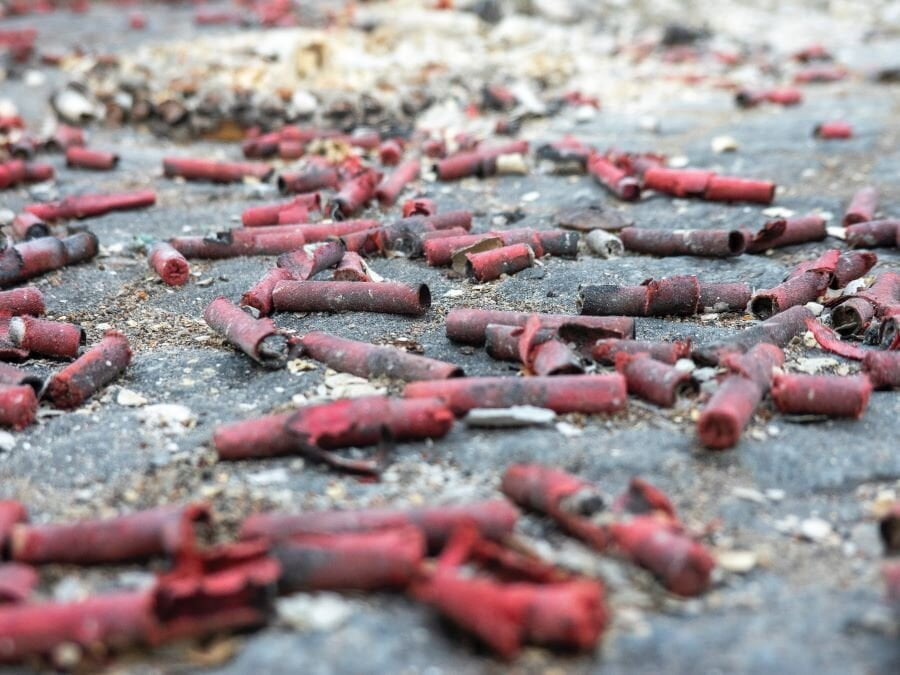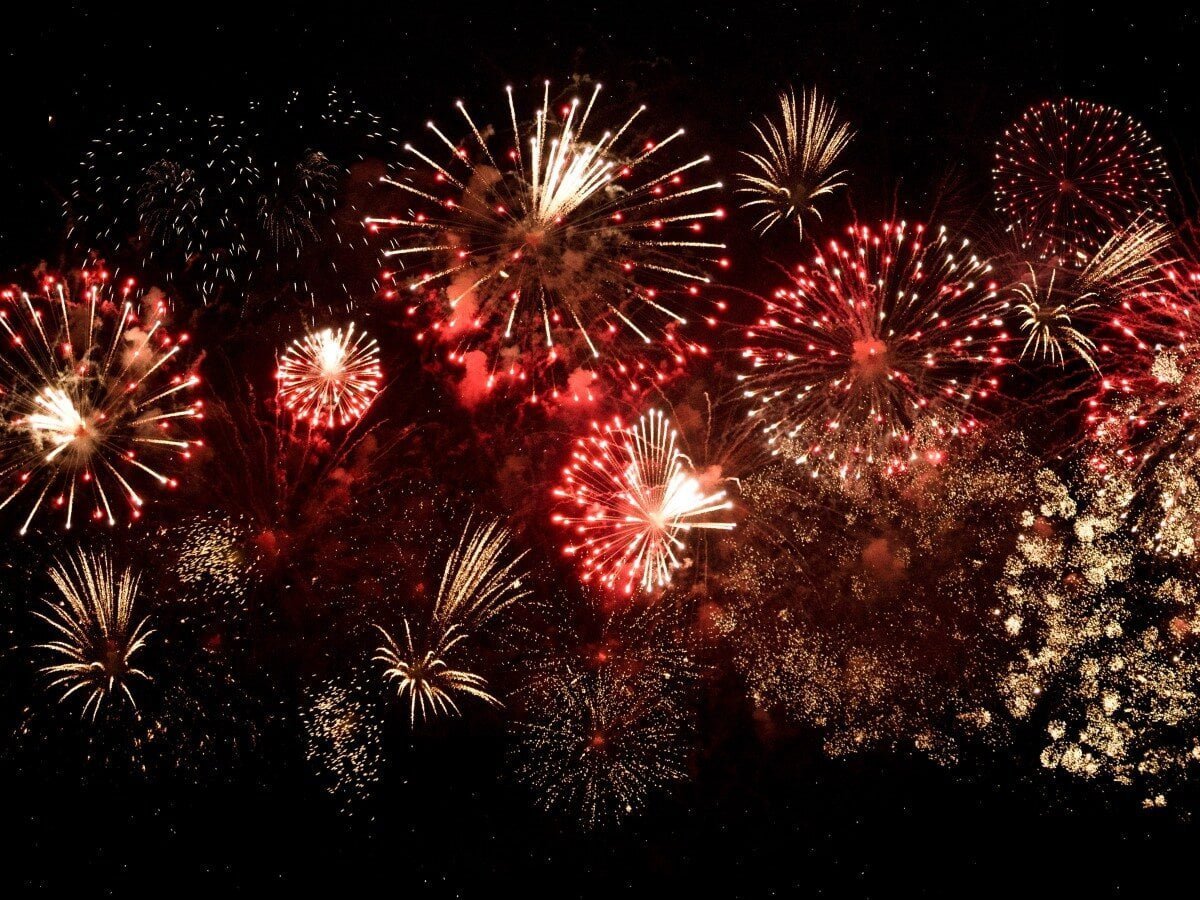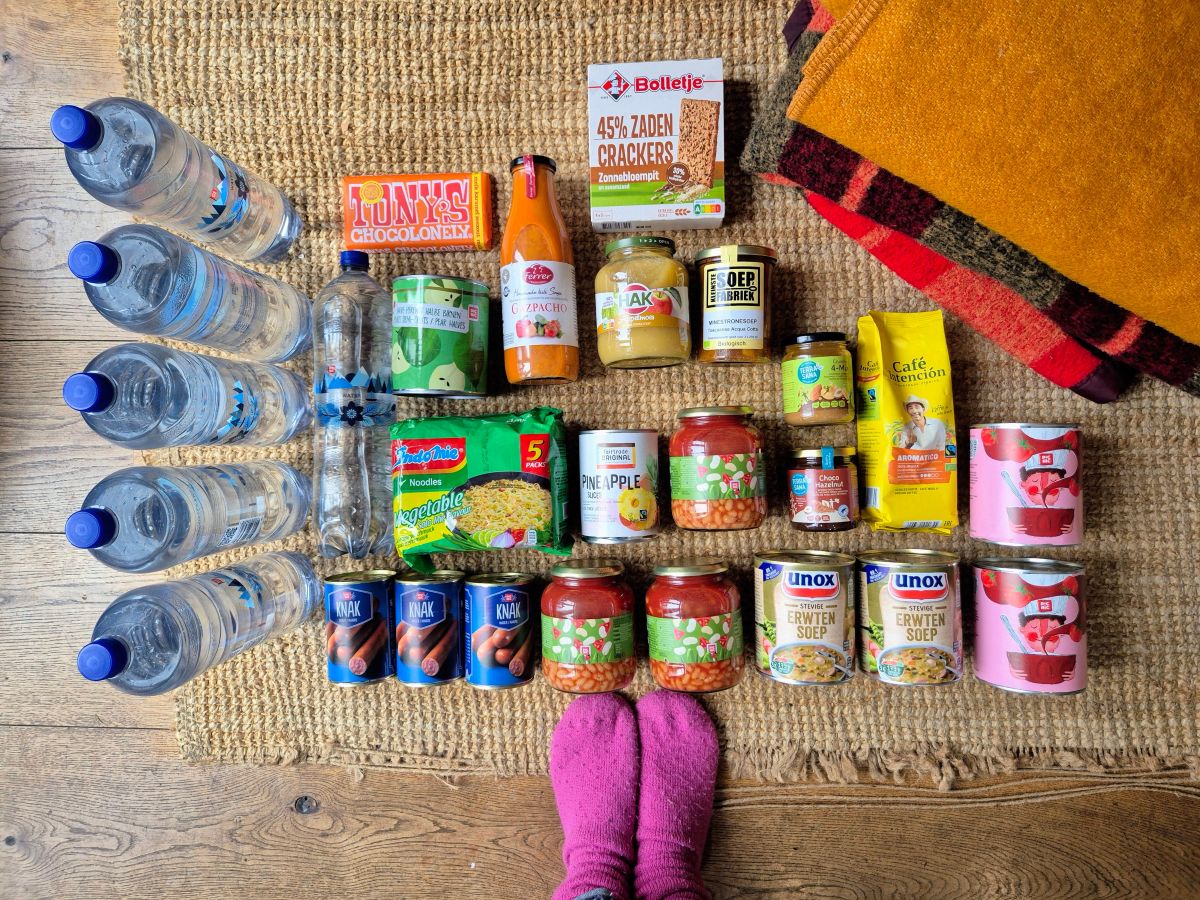Three, two, one... Happy New Year! Three smacks and a close hug. An oliebol in one hand and a glass of champagne in the other, a quick email of New Year's greetings to family and then a quick coat on and out to watch the fireworks. All of the Netherlands seems to complete more or less the same playbook every year on New Year's Eve. But of course, all these fireworks are not good for the environment and they also make animals restless and anxious. How bad is it all and are there ways to still enjoy this tradition? We looked into it!
Fireworks: beautiful spectacle or environmental problem?
Fireworks, with their colourful explosions, have a magical appeal for many people. But in recent years, the setting off of fireworks has also increasingly been the subject of debate. Some municipalities already have complete fireworks bans and some cities are flirting with the idea. There are even voices calling for a nationwide fireworks ban. Doctors who have experienced emergency room shifts on New Year's Eve would like nothing better than a total ban. So many unnecessary accidents and often in very young people too... Despite increasing opposition, fireworks are here to stay for now. So we thought it would be interesting to find out more about them, because they are also a major environmental problem. And while thankfully more and more attention is being paid to that, it still remains somewhat under-reported in the media. But what about it exactly?
Big problem: air pollution from fireworks
When you think of the negative aspects of fireworks, the first things that come to mind are probably accidents involving (illegal) fireworks, frightened pets and all that waste that has to be cleaned up on New Year's Day. But did you know that fireworks are also a major source of air pollution? Pretty logical really, but it's not the first thing you hear about fireworks when they are bad in the news. During a fireworks show or setting off ‘ordinary’ consumer fireworks, harmful substances are thrown into the air, including particulates, sulphur dioxide and nitrogen oxides. Among other things, these substances cause the bangs, but they also deteriorate air quality and burden the environment. Not for nothing, people with COPD and other lung diseases can suffer greatly around the turn of the year. But breathing in these substances is not good for healthy people either.
Scary idea: residues of heavy metals
If we then look a little deeper into the flare or decorative pot, we discover that decorative fireworks also use heavy metals. Without those metals, no beautiful flashes and fountains. You guessed it... These black metals, such as copper, barium, strontium and lead, end up as residues on the ground after the explosion. These substances then contaminate the soil and water systems. And that in turn harms plants, animals and the ecosystems in which they (correction: we) live. We think this is quite a heady insight when you consider how many fireworks are shot off. So headlined NRC that in 2022, we bought fireworks for record sales around the turn of the year: some 110 million euros we spent on them. But there is more!
Invisible but true: fireworks waste pollutes soil
Unfortunately, many people are relentless (nice pun) when it comes to cleaning up their fireworks. You may also have noticed how much rubbish there is on the streets on New Year's Day. Go and pick up litter and you will see it: (un)exploded fireworks cylinders, extinguished darts, leftover firecrackers, ignition wicks, extinguished stars, cigarette butts, stray cans of beer and much more rubbish to remind you of a good party. We keep track of thegreenlist.nl good parties too, but not litter in nature. Unfortunately, not everyone thinks this way and because of this, men and women from the municipalities spend days cleaning up all the fireworks waste and sometimes you still come across tiny scraps months later. Despite these good efforts, a lot of harm has often been done by then. Because what you cannot see with the naked eye is that substances from these firework remnants penetrate the soil, and thus ground and surface water, quite easily. This happens even faster if it rains or is damp, which is not inconceivable given the fine weather in that period....

Fireworks create a lot of mess on the streets, but the toxins also sink into the soil.
Noise and stress for animals
Besides polluting nature, animals are also affected by fireworks. The loud bangs of fireworks can cause stress and anxiety in both domestic and wild animals. Birds, mammals and pets are often disturbed and can panic and get into trouble. How sad is that for all the dogs, rabbits and cats of the Netherlands! Pet owners are getting from the Animal welfare even the tip to close curtains, turn on the lights and the radio or TV to make the sound of fireworks less noticeable. But dogs and other pets can even months later still suffer from the stress and anxiety caused by fireworks. There is little fun in that!


Unfortunately, sustainable fireworks do not exist.
Is there such a thing as sustainable fireworks?
OK, so fireworks are very harmful. But is there anything that allows you to still enjoy setting off-or watching-fireworks without all that damage? Or at least: with less damage would go a long way. We've come up with a few ideas. To manage your expectations: there is no such thing as the eco-friendly solution. Well, that's not entirely true by the way. Watching a fireworks show on TV is quite a sustainable choice, but try convincing a fireworks enthusiast of that....
1. Silent(er) fireworks
Can't control your appetite for setting off fireworks? Then choose silent fireworks, which cause less noise pollution. You'll be doing the animals a favour. These are consumer fireworks available everywhere, also known as children's fireworks (category F1). These include poppers, small fountains and flowers.
2. Setting off fireworks together
If you really want to make a show of it anyway, organise a fireworks show together with the neighbourhood. That way, you'll set off less together, and because you do it together in one place, it'll also save something for the environment. In any case, it also saves a lot for the wallet. If you have no neighbours or your neighbours are not party material, check whether a fireworks show is organised in your neighbourhood (by a municipality).
3. The zero waste New Year's reception
Of course, we have long known that telling fanatical fireworks enthusiasts not to set off fireworks does not help. ‘Have you got one of those green geeks again’, they must think. So we have a great idea: the zero waste New Year drink. Over a glass of bubbles, eat the last oliebollen together and clean up fireworks waste! In doing so, we help nature, it's good for togetherness and you prevent children from messing about with the fireworks waste on the street. We personally think this really is a top plan.
Perhaps needless to say: but there are legal rules for setting off fireworks in the Netherlands. For example, setting off fireworks is prohibited for children under 12, there are maximum rules for how many fireworks you can own and what type of fireworks you can set off. Not aware or in doubt? Check the website of your municipality for the rules in your neighbourhood. And your mother was right: take care, but also enjoy this beautiful evening that - with any luck - you will only experience about eighty or ninety times in your life at most.
More sustainable holiday tips from thegreenlist.nl
- Leftover oliebollen? Bake oliebollen-wentelteefjes or oliebollenbrood.
- Broken glass during the holidays? Read here what should and especially what should not go in the bottle bank.
- Good intentions? Start with a happiness pot.
Sources: Milieu Centraal - Fireworks, Central government - Fireworks regulations. Photo credits: main image: Designecologist (Unsplash), trash fireworks: Etienne Girardet (Unsplash), stars: Ian Schneider (Unsplash), group of people fireworks: Guillaume Issaly (Unsplash).






